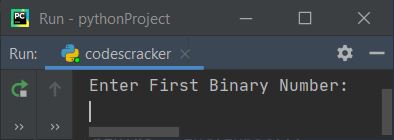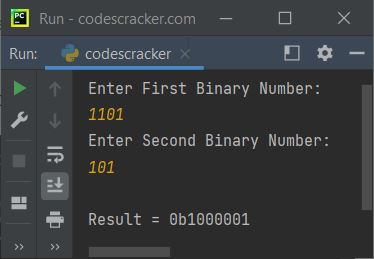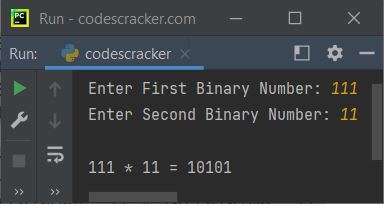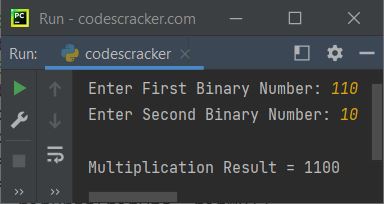- Python Basic Programs
- Python Program Examples
- Python Print Hello World
- Python Get Input from User
- Python Add Two Numbers
- Add Subtract Multiply Divide
- Python Check Even or Odd
- Python Check Prime or Not
- Python Check Alphabet or Not
- Python Check Vowel or Not
- Python Check Leap Year or Not
- Check Reverse equal Original
- Check Positive Negative Zero
- Python Check Armstrong or Not
- Python Check Palindrome or Not
- Python Check Perfect Number
- Python Find Reverse of Number
- Python Count Digits in Number
- Python Add Digits of Number
- Sum of First and Last Digits
- Python Product of Mid Digits
- Sum of Squares of Digits
- Interchange Digits of Number
- Python Sum of n Numbers
- Python Print ASCII Values
- Python Swap Two Numbers
- Python Swap Two Variables
- Python Fahrenheit to Celsius
- Python Celsius to Fahrenheit
- Python Display Calendar
- Python Days into Years, Weeks
- Find Largest of Two Number
- Find Largest of Three Number
- Python Print Fibonacci Series
- Generate Armstrong Numbers
- Python Make Simple Calculator
- Python Add Binary Numbers
- Binary Number Multiplication
- Python Mathematical Programs
- Find Sum of Natural Numbers
- Find Average of n Numbers
- Python Print Multiplication Table
- Print Table using Recursion
- Python Find Average Percentage
- Python Find Grade of Student
- Find Square Root of Number
- Python Print Prime Numbers
- Find Numbers Divisible by
- Python Find Factors of Number
- Python Find Factorial of a Number
- Python Find HCF & LCM
- Python Kilometres to Miles
- Python Find Area of Square
- Python Find Area of Rectangle
- Python Find Area of Triangle
- Python Find Area of Circle
- Python Find Perimeter of Square
- Find Perimeter of Rectangle
- Python Find Perimeter of Triangle
- Find Circumference of Circle
- Python Simple Interest
- Python Solve Quadratic Equation
- Python Different Set of Operations
- Python Display Powers of 2
- Python Find nCr & nPr
- Python Pattern Programs
- Python Print Pattern Programs
- Python Print Diamond Pattern
- Python Print Floyd's Triangle
- Python Print Pascal's Triangle
- Python List Programs
- Python Count Even/Odd in List
- Python Positive/Negative in List
- Python Even Numbers in List
- Python Odd Numbers in List
- Python Sum of Elements in List
- Sum of Odd/Even Numbers
- Python Element at Even Position
- Python Element at Odd Position
- Python Search Element in List
- Python Largest Number in List
- Python Smallest Number in List
- Python Second Largest in List
- Python Second Smallest in List
- Python Insert Element in List
- Python Delete Element from List
- Python Multiply Numbers in List
- Swap Two Elements in List
- Python 1D Array Program
- Python Linear Search
- Python Binary Search
- Python Insertion Sort
- Python Bubble Sort
- Python Selection Sort
- Remove Duplicates from List
- Python Reverse a List
- Python Merge Two List
- Python Copy a List
- Python Conversion Programs
- Python Decimal to Binary
- Python Decimal to Octal
- Python Decimal to Hexadecimal
- Python Binary to Decimal
- Python Binary to Octal
- Python Binary to Hexadecimal
- Python Octal to Decimal
- Python Octal to Binary
- Python Octal to Hexadecimal
- Python Hexadecimal to Decimal
- Python Hexadecimal to Binary
- Python Hexadecimal to Octal
- Python Matrix Programs
- Python Add Two Matrices
- Python Subtract Two Matrices
- Python Transpose Matrix
- Python Multiply Matrices
- Python String Programs
- Python Print String
- Python Find Length of String
- Python Compare Two Strings
- Python Copy String
- Python Concatenate String
- Python Reverse a String
- Python Swap Two Strings
- Python Uppercase to Lowercase
- Python Lowercase to Uppercase
- Python Check Substring in String
- Python Count Character in String
- Count Repeated Characters
- Python Count Word in Sentence
- Python Count Each Vowels
- Python Capitalize Character
- Python Capitalize Word in String
- Python Smallest/Largest Word
- Remove Spaces from String
- Remove Duplicate Character
- Remove Vowels from String
- Remove Punctuation from String
- Python Remove Word in String
- Python Remove Duplicate Words
- WhiteSpace to Hyphens
- Replace Vowels with Character
- Replace Character in String
- Python Sort String in Alphabetical
- Sort Word in Alphabetical Order
- Extract Number from String
- Python Check Anagram Strings
- Python File Programs
- Python Read a File
- Python Write to File
- Python Append Text to File
- Python Copy Files
- Python Merge Two Files
- Python Counts Characters in File
- Python Count Words in File
- Python File Content in Reverse
- Python Lines Contains String
- Python Delete Line from File
- Python Capitalize Word in File
- Python Replace Text in File
- Replace Specific Line in File
- Python Find Size of File
- Python List Files in Directory
- Python Delete Files
- Python Misc Programs
- Python Reverse a Tuple
- Python Merge Two Dictionary
- Python bytes to String
- Python bytearray to String
- Generate Random Numbers
- Python Print Address of Variable
- Python Print Date and Time
- Python Get IP Address
- Python Shutdown/Restart PC
- Python Tutorial
- Python Tutorial
Python Program to Multiply Two Binary Numbers
This article is created to cover one of the famous program in Python, that is multiplying two binary numbers entered by user. Here are the list of programs covered in this article:
- Multiply two binary numbers using pre-defined function
- Multiply two binary numbers without using any pre-defined function, rather using user-based or self-used code
Binary Number Multiplication using Function
The question is, write a Python program that multiplies two binary numbers entered by user at run-time. The upcoming program is answer to this question:
print("Enter First Binary Number: ") binOne = int(input()) print("Enter Second Binary Number: ") binTwo = int(input()) binOne = str(binOne) binTwo = str(binTwo) decMul = int(binOne, 2) * int(binTwo, 2) binMul = bin(decMul) print("\nResult = " + binMul)
Here is its sample run:

Now supply inputs say 1101 as first and 101 as second binary number, to multiply these two given binary numbers and print the multiplication result on output as shown in the snapshot given below:

Modified Version of Previous Program
This program is the modified version of previous program. The end used in this program, is to skip insertion of an automatic newline using print(). The str() converts from any type to a string type. The int() method converts into decimal number format.
print(end="Enter First Binary Number: ") binOne = int(input()) print(end="Enter Second Binary Number: ") binTwo = int(input()) binOne = str(binOne) binTwo = str(binTwo) decMul = int(binOne, 2) * int(binTwo, 2) binMul = bin(decMul) print("\n" + binOne + " * " + binTwo + " = " + binMul[2:])
Here is its sample run with user input, 111 as first and 11 as second binary number:

Binary Number Multiplication without using Function
This is the main program of this article. Proceeding anything in a programming world using self-created or user-based code is better way to learn the things. That is using any pre-defined function to do the task will not allow you to learn more. Rather it is like remembering the things.
But using or understanding user-based code to do the same task gives you more and deep understanding about the logic, processes, loops, and all that in a better way. So always try to create user-based code for each and every task. Like this program multiplies two binary numbers entered by user, using self-created code by one of the codescracker programmer. Let's have a look at the program and its sample run:
def binProd(binOne, binTwo): i = 0 rem = 0 sum = [] bProd = 0 while binOne != 0 or binTwo != 0: sum.insert(i, (((binOne % 10) + (binTwo % 10) + rem) % 2)) rem = int(((binOne % 10) + (binTwo % 10) + rem) / 2) binOne = int(binOne/10) binTwo = int(binTwo/10) i = i+1 if rem != 0: sum.insert(i, rem) i = i+1 i = i-1 while i >= 0: bProd = (bProd * 10) + sum[i] i = i-1 return bProd binMul = 0 factr = 1 print(end="Enter First Binary Number: ") binOne = int(input()) print(end="Enter Second Binary Number: ") binTwo = int(input()) while binTwo != 0: digit = binTwo % 10 if digit == 1: binOne = binOne * factr binMul = binProd(binOne, binMul) else: binOne = binOne * factr binTwo = int(binTwo/10) factr = 10 print("\nMultiplication Result = " +str(binMul))
Here is its sample run with user input, 110 as first and 10 as second binary number:

« Previous Program Next Program »